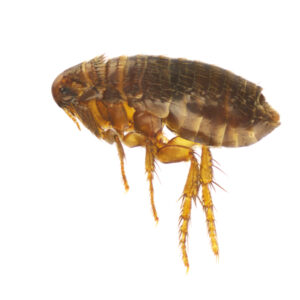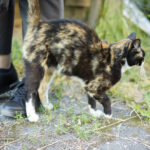
Need Help? Call Us On 0161 776 9832 For Expert Pest Control Advice On How To Identify Pest Infestations And Help Solve Your Pest Problem.
Youngs Pest Control Flea Treatments in Grasscroft
At Youngs Pest Control, we understand the difficulty of dealing with flea infestations. That's why we're here to help. We
We at Youngs Pest Control are a local family-run business in Grasscroft that strives to keep properties free of fleas for you and your family. Our technicians are experts in the field, so if fleas have taken over, don't hesitate to give us a call.
Some of the services we offer include :
- Flea eradication
- Inspections
- Treatments
- Follow up services
- Prevention Tips
Fleas are a common problem faced by homeowners and pet owners alike. These tiny parasites can cause irritation, discomfort and even transmit diseases to both humans and animals. In Grasscroft, where many households have pets that roam outside, flea infestations in the home or garden can become a major nuisance. Fortunately, Youngs Pest Control offers effective flea treatments that target these pests at their source.
Youngs Pest Control is a professional pest control company with years of experience in tackling various types of infestations, including fleas. Our team of experts understands the biology and behaviour of fleas, which enables them to develop customised solutions for each case they encounter. They offer a range of flea treatments tailored to specific needs. With Our help, residents in Grasscroft can enjoy their gardens without worrying about flea bites or potential health risks associated with these blood-sucking insects.
Methods by which fleas spread
Fleas are known to be one of the most prevalent pests in both residential and commercial settings. They can easily spread from one environment to another, infesting households, gardens, and even wild animal habitats. According to recent studies, adult fleas live for months, and during that time, they can lay as many as 2000 eggs. This means that within just a few weeks, an infestation can quickly become severe without proper treatment.
Direct contact with an infected animal is often the primary mode of transmission for fleas. Both cat flea (Ctenocephalides felis) and dog flea (Ctenocephalides canis) species prefer their respective hosts but will readily transfer between them if necessary. Flea larvae feed on organic debris found in carpets or bedding materials before developing into adults that require a blood meal to survive. Once hatched, these new fleas will seek out potential hosts by jumping onto any warm-blooded mammal nearby.
Infested environments provide ideal conditions for fleas to thrive due to the abundance of organic material available for larval development. Carpets, pet beds, and even outdoor areas such as gardens and lawns can harbour large populations of fleas, which then go on to infest pets or people who come into contact with these areas. It's important to note that simply treating your pets may not be enough - effective flea control also involves addressing the underlying environmental factors contributing to the issue through thorough cleaning and targeted treatments for affected areas.
By understanding how fleas spread and identifying risk factors associated with infestations, it becomes possible to implement effective treatment strategies that address both current outbreaks and prevent future ones from occurring.
Why must you treat a flea infestation
Having discussed the means by which fleas spread, it is essential to understand why flea infestations should be treated. Flea infestations can pose serious health risks to both humans and pets. One of the primary concerns is irritation and discomfort caused by flea bites, leading to incessant scratching that may cause skin infections.
Flea allergy dermatitis is another severe condition resulting from flea bites. Pets with this type of allergy are susceptible to intense itching and inflammation, causing hair loss or even secondary bacterial infection. Rapid reproduction is yet another reason why flea control measures must be taken immediately upon detection of an infestation. Fleas lay eggs in abundance, making eradication a challenging task.
Pest control professionals recommend immediate flea treatments when you spot any sign of an infestation.
Guidance on how to prepare for flea treatment
Prior to treatment for fleas, it is important to make necessary preparations in order to maximize the effectiveness of flea control. Proper preparation can ensure that your home remains safe and free from any negative effects that may be associated with flea treatments.
One crucial step in preparing for flea eradication is cleaning your home thoroughly. This includes washing all bedding and clothing in hot water as well as clearing clutter from floors and surfaces. Fleas are attracted to warm environments, so it's essential to vacuum furniture upholstery and carpets regularly before treating them.
Furthermore, prior to the application of any flea treatments, it's best to move furniture away from walls and remove any items that obstruct access to baseboards or floor edges where fleas tend to hide. Preparing adequately before treatment for fleas will help minimise the spread of infestation while ensuring that you get maximum results from your chosen pest control provider without putting yourself at risk.
Expectations when it comes to a professional flea treatment.
The first step in any professional flea treatment is to conduct a thorough inspection of the home and pets. This allows pest control experts to identify areas where fleas may be hiding, such as carpets, furniture, bedding, and other areas frequented by pets. Once identified, targeted treatment plans are developed based on the severity of the infestation.
Flea eradication typically involves a combination of chemical treatments applied directly to your pet's skin or fur and specific areas within your home. These treatments are formulated with safe procedures in mind - so you can rest well knowing that they won't harm your family members or pets. After the initial application, follow-up visits may be necessary to monitor progress and make adjustments accordingly until the infestation has been completely eliminated.

As pest control specialists, our mission is not only to eradicate fleas but also to educate homeowners about prevention methods. An allegory that describes this situation would be like trying to fill a bucket with water while there's a leak at the bottom; treating an active flea infestation without addressing preventive measures is futile. By maintaining cleanliness in your home and regularly grooming your pets, you're effectively plugging that leak so that future flea outbreaks don't occur. Trust Young's Pest Control for all your pest management needs – we'll get rid of fleas today so you can rest easy tomorrow.
We also service Neighboring areas like Oldham and Uppermill.
OL3
OL4
